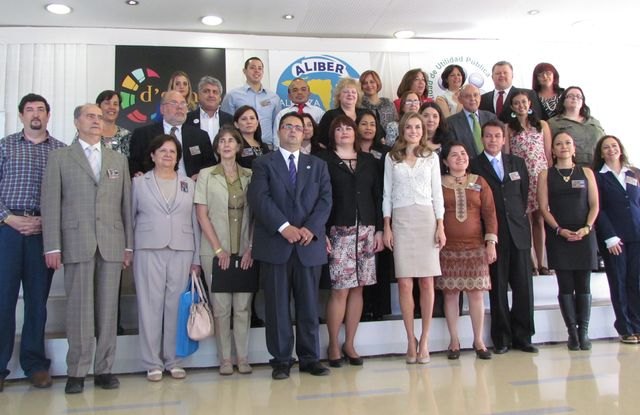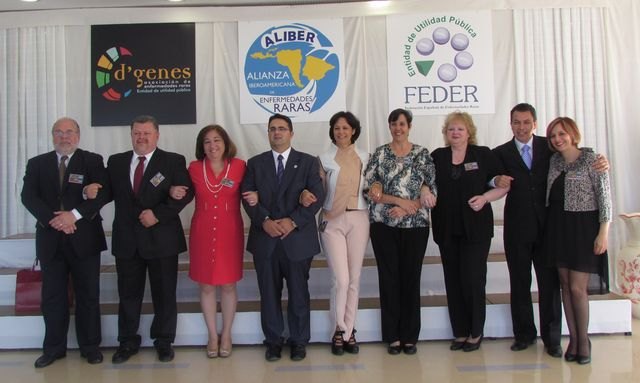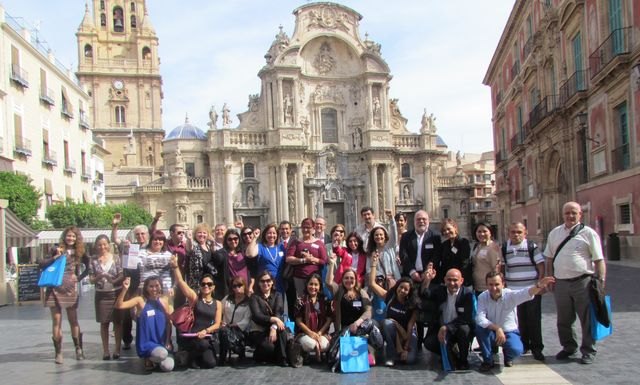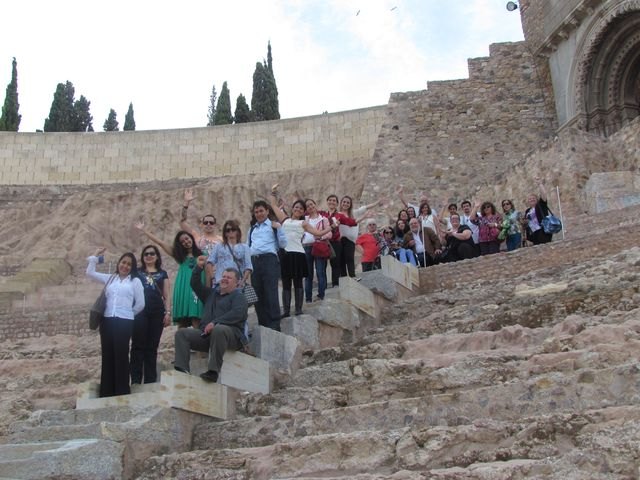Juan Carrion, President of ERDF, who will lead this Alliance whose purpose is to share the rights situation and inequalities of people with rare diseases
Hope, hope, dreams and above all a message: IF YOU WANT, YOU CAN.
This was the essence of a week full of projects, ideas and initiatives.
All of them, wrapped in an ideal setting, the First Congress of Rare Diseases, organized by the Spanish Federation for Rare Diseases (ERDF) and the Association for Rare Disorders and other Developmental Disorders Graves (D'Genes).
A conference that brought together more than 15 countries in Latin America and Europe and has had as a finishing touch I shaping the Latin American Alliance for Rare Diseases, led by Juan Carrion, current president of ERDF.
The closing of the meeting was presented by HRH the Princess of Asturias who confessed to being committed "to each of the people who have suffered or are suffering one of these diseases," making it clear that "many mothers and fathers, doctors and researchers move mountains all the days of his life to snatch a euro and dedicate to the research, the only path that could cure these diseases and if not improve their quality of life. "
The alliance, which has led drivers to Elizabeth Zabala, Spanish director of the Charitable Foundation in Guatemala, Juan Carrion, president of ERDF and Javier Guerra, Marfan Mundo Latino representative "whose main objective is to share the situation of rights and legal inequalities being experienced by people with rare diseases in different parts of the world, "says Carrion.
It also aims to establish a joint working online all iberomericanos countries which will have its first action under the World Day for Rare Diseases in 2014.
Gold brooch
The First Latin American Alliance for Rare Diseases, was the finale to one weeks training and fun where representatives of the Latin American alliances have been able to enjoy and share unforgettable moments.
The conclusions of the meeting were numerous.
Every day deepened in a particular topic, moving projects, initiatives and ideas that allow attendees to promote new actions in different countries.
The topics addressed were rights, promotion of associations, visibility and social awareness and action and care models.
Key Findings
Claudia Delgado, director of ERDF explains some of the main conclusions of the Congress.
"If something were transmitted was the need to be protagonists of our rights, through unity and strength of partnerships.
It is vital, empower and give the right tools to the group of rare disease associations.
With this, we can give a clear, organized and posing solutions "
Moreover, all countries and alliances agreed on the urgent need to establish and promote Census and records that reveal the actual number of cases that exist on rare diseases in their countries.
Thus, keen interest resulted from the presence of Manuel Posada, director of the Institute for Rare Diseases (IIER) who spoke of the experience of the record in Spain.
For its part, also attended the European Organization for Rare Disorders, that through him Cann Yan, director of EURORDIS, John Dart, Anja Helm and Denis Costello moved the main activities being carried out in Europe to boost national plans and patient communities cohesive and motivated.
Francesc Palau, scientific director of the CIBER of Rare Diseases (CIBERER) explained the translation of biomedical research to health care in rare diseases.
In addition, Maria Luisa Martinez Frias, director of the Center for Research on Congenital Anomalies (CIAC) explained ISCIII experience Spanish case-control registry of congenital anomalies and the importance of prevention during pregnancy.
Similarly, Aitor Aparicio, Director of the National Reference Service for People with Rare Diseases and Their Families of Burgos (BELIEVE), spoke about the progress in social care in rare diseases in Spain.
Similarly, Pedro Serrano, Canary Foundation and Health Research (FUNCIS) discussed the cost of rare diseases by assessing the economic impact of patients and their caregivers
Disability and people skills were other major areas addressed by Thomas Castillo, Treasurer of ERDF.
Just Herranz, representative of ERDF Mayoral Star, Coordinator of Information and Guidance Service, Isabel Biker, Psychologist ERDF Echandi Lujan, Head of Sector Management; Alba Ancochea, deputy ERDF Rosa Sanchez de Vega, a member of the Board ERDF; Antonio Bañon, Head of ERDF and Mary OBSER Tomé, Communications and Fundraising were also part of the congress.
In addition, the Colombian Federation of Rare Diseases (FECOER) Argentina Federation Uncommon Disease (FADEPOF) All States Association for Rare Diseases (ATUERU), the Spanish Association of Charity of Guatemala, the Venezuelan Association of Patients with Lysosomal Diseases ( AVEPEL) CRONICARE Foundation, the Ecuadorian Foundation of Patients with Lysosomal Storage Diseases (FEPEL-DASHA), the Mexican Federation of Rare Diseases (FEMEXER / Project Make a Wish), The Study Group on Rare Diseases GEDR of Brazil, the Marfan Mundo Latino Spanish-speaking Community, the Argentine Group GADAPER Online Community Support Rare Disease Patient, the Colombian Association of Patients with Lysosomal Storage Diseases (ACOPEL), the Mexican Organization for Rare Diseases (OMER) and the Association of Mucopolysaccharidosis Paolista and Rare Diseases (APMPSE Raríssimas), the Federation of Rare Diseases Portugal (FEDRA) and Fundación Augusto Turenne, were at the meeting to present their projects and initiatives with the aim of exchanging experiences.
Naca Eulalia Pérez de Tudela, President of D'Genes and wanted to show his appreciation AELIP stating "To carry out the activities to be developed in this framework, has been essential to the support of the pharmaceutical industry, various corporate sponsors and collaboration of various government here represented "
There are many organizations and companies that have wanted to join this I Iberoamerican Meeting.
Specifically, from the public, has been supported by the National Reference Center for Assistance to People with Rare Diseases and Their Families (BELIEVE), the Region of Murcia, Murcia City Hall, the city of Cartagena, city of Lorca , City of Totana, Aledo City Council.
On the other hand, institutions such as the Eleven Foundation, the Catholic University of Murcia and the University of Murcia also supported the Congress.
From the business world, we had the collaboration of Genzyme Foundation, Intermune, Minoryx, BioMarin, Fluor, Genagen and the Rotary Club of Murcia.
In addition, the conference was also supported and endorsed by EURORDIS, Project BURQOL-RD, FUNCIS and ER Observatory.
View report:
http://www.totana.com/cgi-bin/princesa-de-asturias-letizia-ortiz-en-totana.asp





